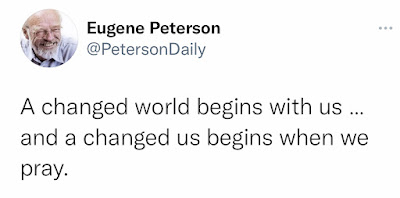Practice makes perfect.
This old saying reminds us of a basic truth: In order to do things well we need to learn how to do them.
This is a process that takes time. The repetition that happens through practice is essential for learning fundamentals and building muscle memory. Both are needed to make a new skill become like second nature in our lives.
If we are going to do something well we have practice doing it.
A musician needs to learn how to read music, to play scales, and to keep time before any actual music can even be played. Even then hours of practice are required to play a piece of music well.
A basketball player needs to learn how to dribble, pass, and shoot so he can play with other players. After that hours of practicing the game is needed before an actual game can be played so that both player and team play well.
Practice is a universal law governing how we improve a skill or a talent.
Since this is the case, why have we overlooked the importance of practice when it comes to our spiritual development?
Perhaps it is because we don’t want to be accused of doing “works” to earn our salvation.
Perhaps it is because we don’t have a coach, teacher, or mentor guiding us through what we need to do.
Whatever the reason, we have neglected the development of our spirits.
C. E. Orr in his book
How to Live a Holy Life wrote:
One of the main problems for American Christians today is an understanding of spiritual formation. They have confessed their sin, repented, declared their faith in Jesus, and have been baptized, but then they have been abandoned to figure things out for themselves.
The American church lacks true discipleship.
Reflect on what the apostle Paul told Timothy:
Paul reminded Timothy not to waste his life in doing things that did not matter. Timothy could spend his life arguing against the silly myths of the day, which would take time but ultimately would be ineffective and a waste of his time.
Timothy could also devote his time to healthy living and exercise, which would benefit the body, but would have minimal impact on his spiritual formation.
Instead Paul told him to train for godliness.
How do we do that?
If we approach our spiritual formation in Jesus like we approach training and practice in other areas, like music and sports, then I think we can see two commitments we must make.
First, we need to commit to spiritual disciplines. Spiritual disciplines are activities that God’s people have historically done to mature as people of faith. In fact, many of these disciplines are things that Jesus during his time on earth. These disciplines include activities such as Bible study, prayer, fasting, giving, and worship. These things are the equivalent of learning how to play a music scale or learning how to dribble a basketball. They are want teach your mind, heart, soul, and body how to act when faced with the realities of life.
Second, we need to commit to Christian duties. Duties are those things that God expects His people to do. They include things like serving people, forgiving those people who hurt us, sacrificing time and money to help make disciples, and standing up for what is right. These are not things that we do naturally or even enjoy doing, and that is why they become duties. When we do them, because of our love for God, they teach us humility and loving neighbor as ourselves. These duties are much like practice. They are boring, just like playing the same piece of music a thousand different times or going to basketball practice day after day and compete against the same people, but they help you get ready for the concert or game. When we make the choice to do these duties we are preparing to meet the unpredictable choices that we face in life.
If we are going to be like Jesus we need to train to be like him. This training is going to take a lot of hard work on our part and a lot of grace on God’s part, but working together transformation will take place.
We can be conformed into the image of Jesus!
Join the Paul’s Ponderings Facebook Page.


























